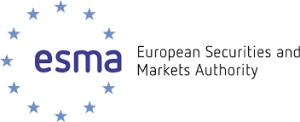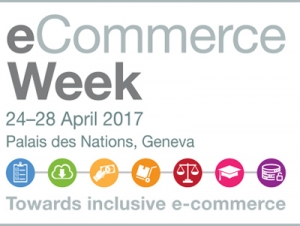News
Mifid II: a huge technology challenge for financial businesses
On 3rd January the Markets in Financial Instruments Directive (the so called MiFID II) is finally entered into force, binding with its new package of rules all European-based financial businesses involved in the distribution or trading of financial instruments (including the major U.S. banks operating in Europe).
The Directive - as stated by ESMA, in the Q&A released on December 18, 2017 - is aimed to “strengthen investor protection and improve the functioning of financial markets making them more efficient, resilient and transparent”.
Pubblicato il rapporto UNCTAD 2017 sullo stato della c.d. "Information Economy"
Lo scorso 2 ottobre l'UNCTAD (United Nations Conference on Trade and Development) ha pubblicato il rapporto 2017 sullo stato della c.d. "Information Economy".
Come si legge nel rapporto, le tecnologie dell'informazione e delle comunicazioni (le c.d. “TIC”), il commercio elettronico (e-Commerce) e le altre applicazioni digitali stanno aiutando un numero crescente di piccole imprese e imprenditori a connettersi con i mercati globali. Ciò non toglie, tuttavia, che esista un rischio non remoto che pochi giganti finiscano per attrarre ampia parte delle risorse generate dallo sviluppo dell’Information Economy.
China inaugurates the first Cyber (State) Civil Court worldwide: is the digital justice revolution already here?
On August the 18th, in China, the Hangzhou Cyber Civil Court heard its first civil trial, dealing with a copyright infringement case between a novelist and a web company that offered her novel to its online subscribers without her permission. All the actors of the trial met via video chat.
The Judge presiding over the case was indeed conducting the hearing from a Hangzhou-based courtroom, equipped with technological facilities allowing the members of the public to watch a projection of the video, while a computer program transcribed the minute of the trial.
Food & AgriTech: the 11th EFITA WCCA Congress is on the way
In less than one week, from July 3rd to July 5th, the 11th EFITA WCCA Congress will take place in Montpellier, France.
As known, the forthcoming Congress is the European conference dedicated to the future use of ICT in the agri-food sector, bioresource and biomass sector. It is supported by the European Federation for Information Technology in Agriculture, Food and the Environment (EFITA) with the collaboration of the World Congress on Computers in Agriculture (WCCA).
PSD2 and Regulatory Technical Standards: a difficult equilibrium between the right to access the digital market and the need of strong customer-based authentication
The European Commission lately held a first Scrutiny Session on the final draft of the Regulatory Technical Standards (RTS) on Strong Customer Authentication and Secure Communication (SCA) submitted for endorsement by the European Banking Authority (EBA) to the European Commission (EC) under Article 98 of the revised Payment Services Directive (PSD2) 2015/2366.
As known, PSD2 - published on December 25th 2015 and in force since January 2016 - aims, inter alia, to the “harmonisation, innovation and security with regard to payment services”.
Apple Pay, Google Wallet, Samsung Pay: is PayPal sufficient for merchants anymore?
Apple Pay is, as known, the uprising Apple E-Payment service aimed - through allowing consumers to make secured purchases using a credit or debit card associated with a supported Apple mobile device - to provide them with “an easier way to pay in stores”; “an easier way to pay within apps” and, more generally, “an easier way to pay on the web”.
As stated on www.apple.com/apple-pay website, indeed, “your card details are never shared by Apple when you use Apple Pay, making payments with your iPhone, Apple Watch, iPad, and Mac is the safer, more private way to pay”.
La Fintech in cerca di Legislatore
La Fintech resta, nel nostro paese e in Europa, in cerca di un Legislatore.
Lo ha ricordato pochi giorni fa, in occasione della relazione annuale dell’autorità dell’ 8 maggio 2017, il Presidente Giuseppe Vegas, evidenziando l’ormai cogente necessità di nuovi interventi regolamentari in tema di finanza digitale.
E’ in questa prospettiva che il 25 maggio prenderanno il via, presso le sedi della Commissione nazionale per le società e la borsa di Roma e Milano, i lavori della task force appositamente istituita dalla Consob per ipotizzare il futuro della regolamentazione della finanza digitale nel nostro Paese.
L'economia digitale protagonista del Summit di Ginevra organizzato dall'UNCTAD
La settimana dell’e-Commerce, promossa dalla Conferenza della Nazioni Unite per il Commercio e lo Sviluppo (UNCTAD) - principale organo sussidiario permanente dell’ONU operante nei settori del commercio, sviluppo, finanza, tecnologia, imprenditoria e sviluppo sostenibile - è entrata ieri nel vivo con l’evento pivot “Digital Transformation for All: Empowering Entrepreneurs and Small Businesses”, tenutosi nella sala dell’Assemblea Generale del Palazzo delle Nazioni Unite di Ginevra.
Oltre 600 delegati provenienti da 70 Paesi del mondo hanno avuto l’occasione di confrontarsi sulle tematiche relative alle prospettive di sviluppo futuro dell’e-commerce con un panel di eccezione composto, tra gli altri, da da Mukhisa Kituyi, Segretario Generale dell’UNCTAD, Jack Ma, Special Adviser dell’UNCTAD per l’imprenditoria giovanile e le piccole imprese e fondatore e CEO di Alibaba Group, Roberto Azevêdo, Direttore Generale del WTO e Houlin Zhao, Segretario Generale dell’ITU.
Transazioni B2C concluse mediante marketplace ed estensione soggettiva dell’obbligo del venditore di indicare il link alla piattaforma di ODR dell’Unione Europea
L’obbligo dei venditori di beni e servizi in transazioni B2C (Business to Consumer) di fornire nei propri siti web un link elettronico alla piattaforma di ODR gestita dalla Commissione Europea[1], previsto dall’art. 14 del Regolamento 524/2013/UE[2], nel caso di transazioni concluse mediante l’utilizzo di piattaforme marketplace sussiste soltanto in capo al provider della piattaforma (ad es. Amazon, eBay) e non anche in capo ai singoli venditori.









